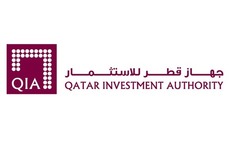
China funds: Cult of personality

Wang Gongquan's apparent departure from China’s private equity industry was nothing if not dramatic. An early-stage investment pioneer with IDG Venture Partners, Wang went on to found CDH Venture Capital, notably guiding Qihoo 360 to the US markets in March of this year.
CDH Venture raised $210 million for its first fund, which launched in 2006, and then $505 million for a second fund in 2007, with CalPERS among the investors, according to AVCJ Research.
Barely two months after Qihoo rang the bell on NASDAQ, Wang announced that he was leaving his wife for his mistress and moving to the US. He broke the news via Sina Weibo, a Chinese equivalent of Twitter, and followed up with an online music video in which he performed an apparently self-penned song called "Ode to Elopement." Wang returned to Weibo in late June to say that he was back in Beijing to sort out his problems and he is still listed as a professional on CDH's website.
But surely this highly public and uncertain chain of events is enough to make any self-respecting LP reach for the phone to air its displeasure and then make a note to run for the door when CDH starts fundraising again? Apparently not.
"I am not saying it's not an issue but we're not running around screaming about it. We look at the CDH team and portfolio and it's pretty good," says one fund-of-funds LP that is invested in CDH Venture Capital. He adds that it's possible for funds to come across as too perfect. "We do appreciate groups that are extremely honest. If they provide information that presents them in a negative light that is in some way a positive for us."
Due diligence challenges
LPs' due diligence processes are well established, having been honed over several fund generations and numerous investment cycles in the West. A GP can expect to see the personal and professional backgrounds of senior management scrutinized, associates benchmarked against their counterparts at other firms, and incentives packages studied. Extensive interviews conducted to establish whether a fund's business model is economically and ethically sustainable.
These criteria translate relatively easily to international private equity firms that have a clear understanding of fiduciary responsibility. With China funds there is less familiarity, which explains why commitments to the country is still minimal for many global LPs; each one might have just a handful of direct relationships with local private equity and venture capital firms.
Yet at the same time there is pressure to increase exposure to what is a high-growth market. And the strong liquidity situation in China means it is relatively easy for star dealmakers to go solo. It has in some respects become a sellers' market; these "personality funds" receive stacks of subscriptions, enabling them to raise more money on favorable terms. In an environment where the latest spin out from a bank or institutional investor is a must-have – yet perhaps somewhat unknown – commodity, LPs must strike a careful balance between getting fund allocations and adhering to their strategic obligations.
"In a hot market, due diligence and terms are the first things that go out the window," says Juan Delgado-Moreira, managing director at Hamilton Lane. "Many investors are quite happy to drop money in China, and because the universe of high-caliber managers is not that large, competition for access can be intense."
Due diligence on any China fund is complicated by the fact that the country's private equity industry is relatively young and volatile. Most local operators have track records that stretch back no more than 6-7 years, which gives LPs less to work with in terms of assessing portfolio companies as well as checking the valuations of past transactions and whether they conform to the fund's strategy.
Changing market
In many cases, reputations have been built on investments alone with GPs yet to prove they can return money to backers. Headline grabbing exits at high multiples have tended to be on transactions entered into several years ago through funds that were much smaller and operating at a time when competition was less intense and valuations were lower.
"When you look at track records you need to look at circumstances in which these track records were created" says Jie Gong, executive director and portfolio manager for Asia at Morgan Stanley Alternative Investment Partners. "As the environment evolves rapidly in Asia, and so does a GP's targeted space in many cases, the question is whether a fund can replicate its success in the earlier vintage years."
Nevertheless, longevity is a source of comfort. CDH could look to assuage concerns raised by Wang's apparent departure by pointing to the strength of its overall franchise and the fact that most of the key players have been around for a while. Much the same could be said of two other perennial favorites, Hony Capital and CITIC Capital Partners. Each of these firms has at least five funds to its name and they launched their first vehicles no later than 2003, according to AVCJ Research.
Doug Coulter, head of private equity for Asia-Pacific at LGT Capital Partners, stresses the need for a balanced and stable team, but above all, a desire to create an "institutional platform" capable of launching a series of funds. "We see more groups talking the talk about building the platform and operational value add, but we need to follow them over a period of time," he says. "With a lot of GPs in China it's still all about one key person."
In this sense, the jury is still out on Primavera, set up by Fred Hu, former Greater China chairman at Goldman Sachs, and Boyu Capital, a vehicle that features TPG's Mary Ma and Ping An Group's Louis Cheung among others.
First-time fund managers are highly unlikely to be considered by leading LPs. Pension funds and other institutional investors, obliged to channel investment proposals through demanding board reviews, would dismiss such cases out of hand.
However, exceptions are often made in China for first-time fund managers who offer some relevant experience. There is a well-beaten path from Goldman Sachs to private equity, with numerous bankers leaving to set up their own funds. The more aggressive LPs may back these people based on connections and deal-sourcing pedigree in their previous jobs, regardless of whether or not they have experience of principal investing or entrepreneurial activities. The risk factor is, of course, higher.
"Boyu's three partners come from very different backgrounds," says Jingjing Bai, a director at placement agent Eaton Partners Advisors. "Although there are concerns that it may become another Hopu story, some investors believe the partners' star profiles and connections will give the fund access to unique deal flows."
Hopu Investment, which raised a $2.5 billion debut buyout fund in 2007, has become a byword for failed partnerships in China. On the surface, it appeared a strong proposition – Richard Ong, the veteran Goldman Sachs banker, plus Fang Fenglei, Goldman's veteran China dealmaker – and Goldman and Temasek Holdings signed up as anchor investors. But the firm disbanded last autumn, having invested over two-thirds of its capital, amidst reports that Ong and Feng couldn't get along. According to LPs familiar with the situation, the risks should have been apparent to anyone who did proper due diligence.
"The red flags were clear," says one LP. "These people had never worked together before; they just came out of Goldman Sachs where everything was taken care of for them. Life is very different in an independent firm."
New Horizon, setting sun?
New Horizon stands out as another private equity firm that glittered in the beam cast by its star dealmaker but whose future now seems uncertain due to management volatility. Boasting Winston Wen Yunsong, son of Chinese Premier Wen Jiabao, as one of its principals, New Horizon was said to be on course for a $1 billion third fund in early 2010, having only set out to raise half that amount. It was 10 times larger than the firm's first fund, which launched less than five years earlier. The growth capital and PIPE-focused vehicle eventually closed at $750 million, with Temasek and SBI said to be among over 30 global investors.
Toward the end of 2010, New Horizon confirmed – in disclosures tied to its withdrawal from a pre-IPO investment in Hong Kong – that Wen left the company a year earlier to work for a Chinese state-owned enterprise.
"Most people, whether they admit it or not, got involved because of him," says one fund-of-funds LP, who didn't invest in New Horizon. "But below William the whole thing doesn't stand up. What was astounding was that there was no key man clause for him. If there had been at least they could have shut down the fund once he left."
Another LP, who looked at New Horizon's first fund only, takes a different line, noting that Wen's fellow principals, Yu Jianming and Cher Teck Quek, are established investors in their own right and had convincing plans for the firm. But the ultimate conclusion was no different: the LP was put off by the presence of Wen. It was impossible to assess the extent of his influence in terms of using the family name to source co-investments and move companies up the listing queue at the Shanghai Stock Exchange. This made establishing New Horizon's credentials and strength-in-depth all the more difficult.
The unknowns tied to the New Horizon situation also point to the fiduciary concerns that lie at the heart of certain personality-driven funds. If a GP relies on the patrician networks that bind together China's political elite, how can you be sure that he isn't doing personal investments outside of the fund that may present a conflict of interest? Who audits the business? How often does the GP issue newsletters to investors and how forthcoming are they with information when pressed for it?
There are certain actions an LP can take to ensure a degree of transparency. Coulter says that LGT likes to take an advisory board seat – a privilege usually granted to investors who commit above a certain amount – which means more face-time with GPs and greater insight into how a fund is being run.
Good oversight is essential when a private equity firm is running a US dollar fund alongside a renminbi vehicle, often catering to two largely different pools of investors. For all the talk of co-investment, LPs see little evidence of it in practice and remain concerned that GPs will be distracted by easy-to-access local currency options. To a certain extent, they are resigned to potential conflicts, aware that leading GPs are inevitably going to pursue renminbi funds simply because they have access to deal flow and willing backers. But private equity firms that seek to raise very large funds in both denominations, especially on a first-time basis, are generally treated with caution.
"It doesn't make sense to back a multi-billion dollar first-time fund in China," says Vincent Huang, a partner at Pantheon. "We are careful in backing first-time funds. It has to be a combination of the right strategy and a team that we have known for a long time."
However, he does add that Pantheon is willing to take a contrarian view for groups it has conviction in.
Forward momentum
Personality-driven funds are likely to last as long as the market allows. Hamilton Lane's Delgado estimates this could be a couple of years, with still more spin outs feeding off investors' appetite for the next big thing.
In more strained conditions fundraising will become difficult and firms may find that the strong subscriptions that greeted funds one and two aren't there for fund four. GPs will in all likelihood be forced to team up under the private equity brand names that have properly established themselves. As a result, the team depth that LPs speak of might be assisted in its development by market forces. Some dealmakers, regardless of their star power, will inevitably fall by the wayside should they fail to perform.
According to some market participants, many of the regional LPs don't consider this scenario because they haven't been around long enough to experience a private equity down cycle – while China stumbled as a result of the global financial crisis, it didn't fall. There is tendency, still, to believe the hype.
"LPs, particularly fund-of-funds, have to look smart in front of their own people and so the idea of investing in a fund started by a princeling is appealing," says one China-based GP. "It's not until you go through a rough patch that you can find out who you can trust. That's when people will put value in good governance and fiduciary responsibility."
Negotiations in a sellers' market are an uphill battle
In a seller's market, a GP is able to dictate terms. Investors are queuing up to subscribe to funds, granting China fund managers the luxury of picking their backers and hammering out favorable financial arrangements. As market participants who spoke to AVCJ are at pains to point out, GPs vary considerably in their approach to these issues.
According to one source, CITIC Private Equity, which launched its most recent fund in May, refused to negotiate on management fees. Typically, investors who make large commitments can get the standard 2% rate reduced by up to three-quarters of a percentage point. But CITIC was adamant that, because the National Council for Social Security Fund (NSSF) had agreed to 2%, so should everyone else.
It's possible the NSSF leaned on CITIC, especially given that fees, which are relatively small size, generally aren't a contentious issue. Carried interest, however, can become contentious. Senior management teams usually expect to walk away with 20% of the net profit from a successful fund; one Asia-focused LP reports that some Chinese venture capital funds have started asking for a carry of 25-35% on the grounds that they are affiliated to US-based operators. Fine details on fund governance and investor repayment terms are also subject to intense negotiation.
The solution, says Jingjing Bai, a director at placement agent Eaton Partners Advisors, is to go in big and early. "Early committers often get favorable economic terms and sometimes a seat on the advisory board, where they can help resolve conflicts and influence investment direction," she says.
Cornerstone investors – often sovereign wealth funds – that agree to back the fund before it has been tested against market demand get the best deal. This can include a stake in the management company and a share of all investors' carried interest. Sovereign wealth funds are also known for co-investing with GPs and taking direct interests in target companies.
Latest News
Asian GPs slow implementation of ESG policies - survey
Asia-based private equity firms are assigning more dedicated resources to environment, social, and governance (ESG) programmes, but policy changes have slowed in the past 12 months, in part due to concerns raised internally and by LPs, according to a...
Singapore fintech start-up LXA gets $10m seed round
New Enterprise Associates (NEA) has led a USD 10m seed round for Singapore’s LXA, a financial technology start-up launched by a former Asia senior executive at The Blackstone Group.
India's InCred announces $60m round, claims unicorn status
Indian non-bank lender InCred Financial Services said it has received INR 5bn (USD 60m) at a valuation of at least USD 1bn from unnamed investors including “a global private equity fund.”
Insight leads $50m round for Australia's Roller
Insight Partners has led a USD 50m round for Australia’s Roller, a venue management software provider specializing in family fun parks.







